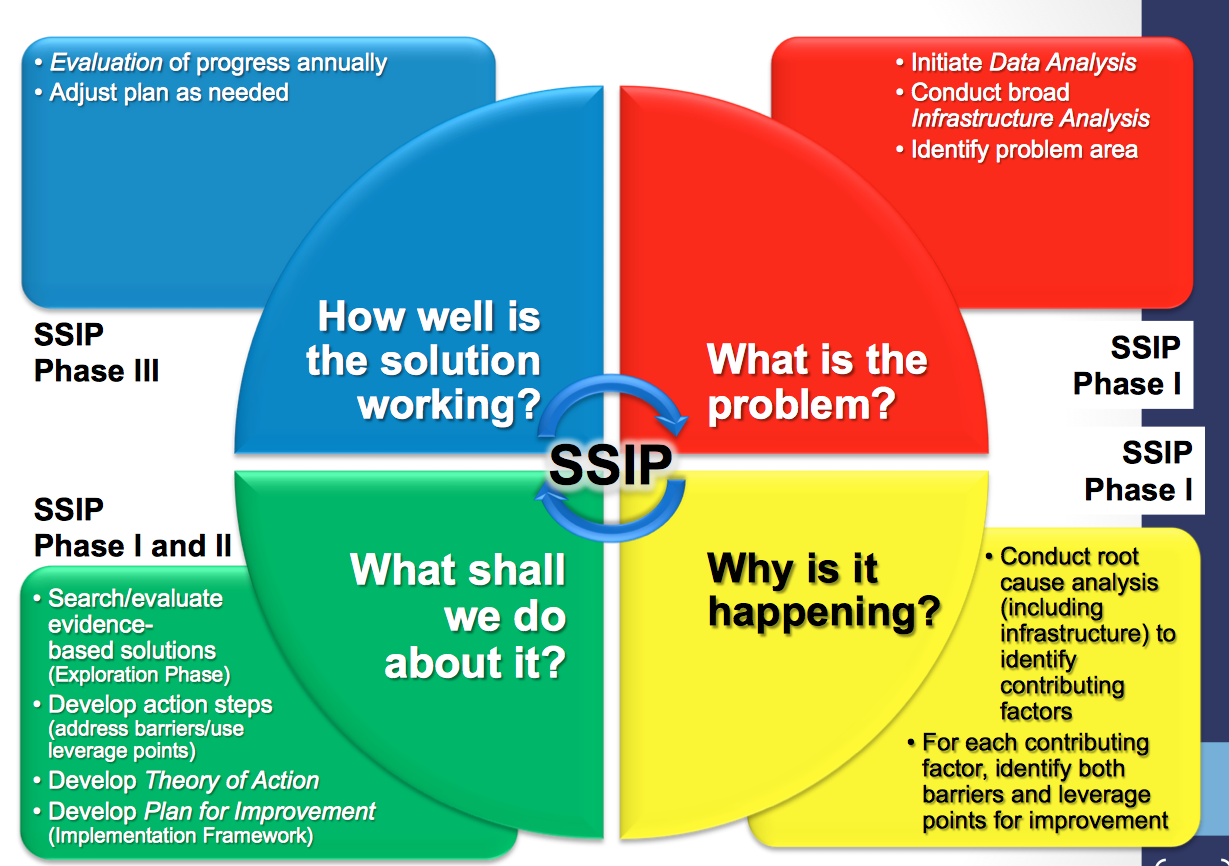The Office of Special Education Programs (OSEP) has added a new indicator to the list of reporting requirements in the Annual Performance Report (APR) for school year 13-14 (due in April of 2015) – Indicator 17 or the State Systemic Improvement Plan (SSIP). This indicator was added as a process to help states create a multi-year, achievable plan to achieve two main goals:
- Improving results for students with disabilities, and
- Help schools deliver and maintain evidence-based practices that have been shown to work
In developing the SSIP, OSEP wants states to concentrate on three main indicators that have been shown to have a huge impact on how well students with disabilities benefit from their education:
- Graduation Rates
- Performances on Statewide Assessments
- Post-High School Outcomes
As you can see by the graphic below, the SSIP process is so big and broad that it is meant to be completed in three phases. Phase I is happening now and will last until April 2015 when the APR, including identified target(s) and examination of factors contributing to poor outcomes, is submitted to OSEP. Phase II results are due in early 2016, and Phase III in early 2017.
Click here to visit the Hawaii Department of Education website and learn more about the SSIP and see data from last year and past reports. (scroll all the way to the bottom of the page for SSIP info)
All Phases of the State Systemic Improvement Plan are required to have broad stakeholder input. Principle #1 of Results Driven Accountability (RDA) is partnership with stakeholders. This is important for lots of reasons including:
- Adding a wide range of ideas, experience and expertise to help make informed decisions
- Making the process more transparent
- Building trust between the Department of Education and stakeholders
- Reducing the likelihood of conflict in the future
Not every parent or helping professional is interested or available to do systems change work. But most of us like to be informed of our options and what new programs or initiatives may help our child or students with disabilities succeed. Here are a couple of suggestions for both receiving information and offering your input:
- The Special Education Advisory Council (SEAC) is required to be part of the SSIP process and holds monthly meetings on Oahu that are open to the public. Check out their agenda and meeting minutes here.
- The Community Children’s Councils (CCC) hold monthly meetings in 17 communities across the state to discuss a variety of issues affecting special education, including the SSIP. To find information on the CCC nearest you, click here.
- SPIN will post updates on how the SSIP is progressing on this website. You are invited to email us at Spin@doh.hawaii.gov or call us at 808-586-8126 with any questions or to leave a comment. We will make sure they are shared with other stakeholders.





